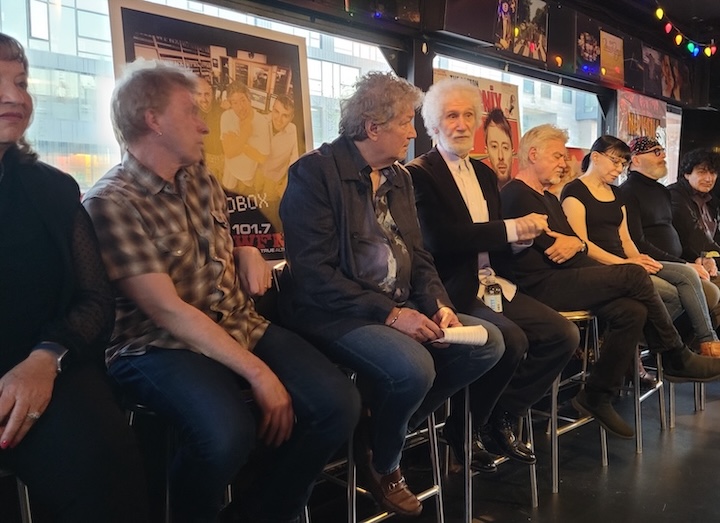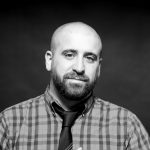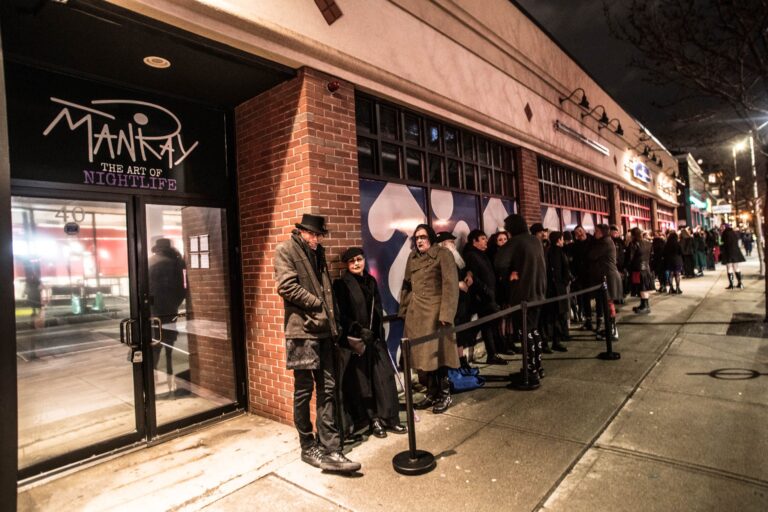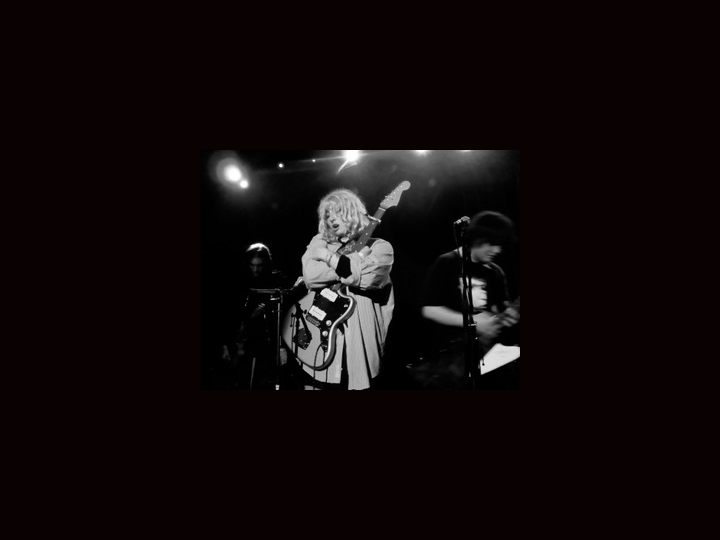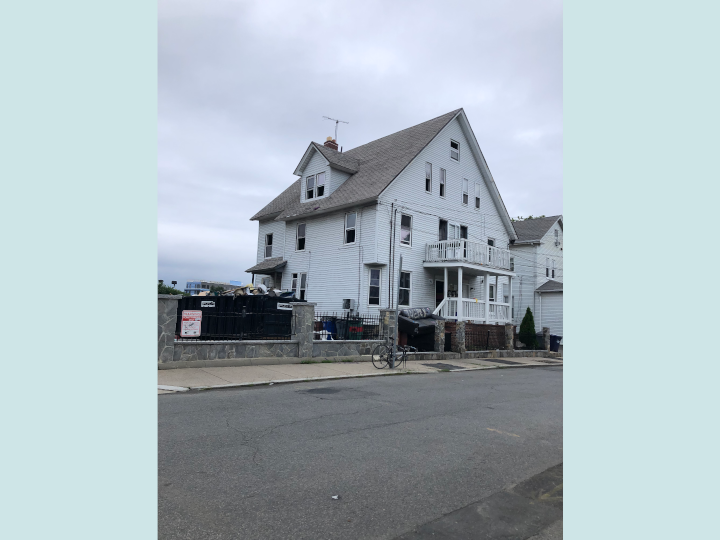Radio and counterculture denizens “respect the past” and embrace future of Boston music and arts
What do you do when the “new” venue that’s styled to pay tribute to eras of yore comes up on its own milestone anniversary?
If you’re the Verb Hotel in Boston, you keep the party rolling like the rock stars whose framed animated faces scream from every wall in the hallways, guest rooms, and Airstream campers which double as miniature Hub museums out back.
By the sheer glory of its Boylston Street parcel, the Verb came into this world in 2014 having inherited vaunted status. The former storied site of a unique atomic age HoJo’s motor lodge that Ben Affleck’s heist gang in “The Town” used to case the ballpark across Van Ness Street, it was also home to, almost as notably, the dimly lit Hong Kong Cafe and its long running open mic night where I bombed several times in the aughts.
But while the Verb could have coasted on its location alone, from the beginning its attentive management has fully committed to paying proper homage, and it has done that with the guidance, curation, and unrivaled stockpile of collector extraordinaire David Bieber and his namesake archive based in Norwood. On Monday, to mark 10 years of chronicling and sometimes excavating popular culture for their guests and visitors to ogle, the team behind the hotel’s rotating exhibits held a “salon gathering” and “group discussion about WBCN, WFNX, and the Boston Phoenix, as well as music and media in Boston from the 1970s, 1980s, and all the decades forward into today’s cultural climate.”
To “celebrate the music and pop culture that emerged out of the Fenway and beyond during the past 50 years,” Bieber came out in the company of friends, iconoclasts, and makers of the kind of media that fills every surface of the Verb. Surrounded by stacks of old news sheets and concert posters, some more than 50 years old but kept crispy in the Bieber archive, Joe Arbeely, the Verb’s marketing and events manager, said the priceless installations “helped build the reputation of this hotel as the inheritance of all of these amazing artifacts. We wouldn’t be here right now if it wasn’t for David.”


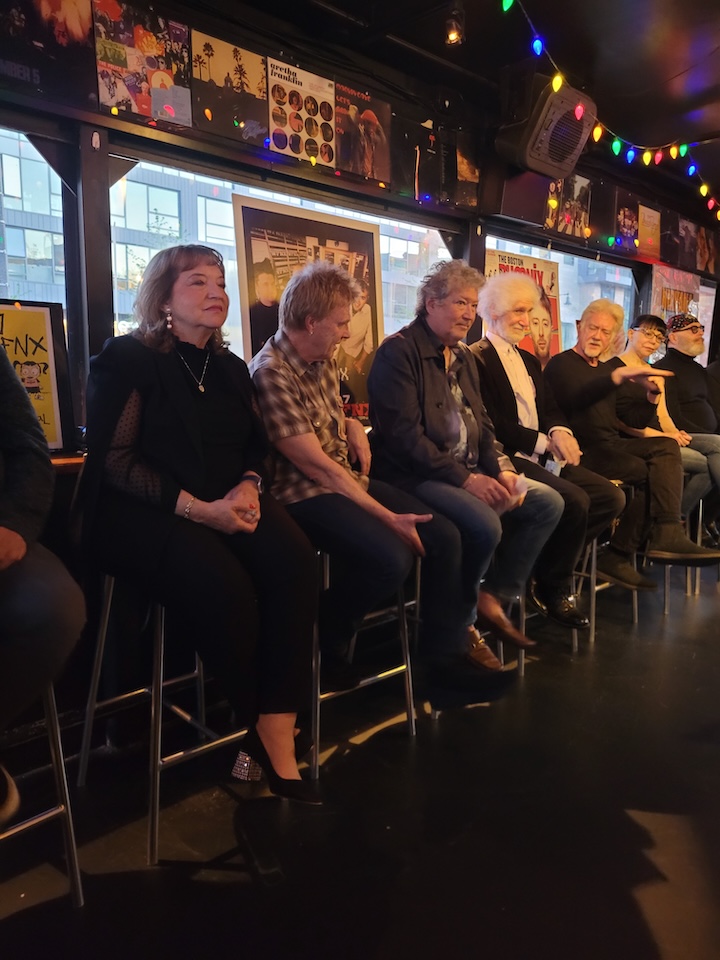
Radio days at WBCN in Boston
For anybody who has ever listened to the radio in Greater Boston over the last half-a-century, the voices in the room at Monday’s Verb event made for a time warp through every era and disc jockey spanning punk to prog to pre-and-post every sub and micro genre on your playlist.
Pointing out the window, Bieber said, “I worked right next door” at WBCN, which was located at 1265 Boylston. He recalled: “The neighborhood was so dicey back then that if a sales person wanted to take a client to lunch, there were two choices—Burger King or McDonald’s.”
What the area lacked in fine dining it made up for in its cultural touchstones, from the Phoenix alternative newspaper offices nearby on Brookline Ave, to artist studios across the street. And of course the venues; kicking off the conversation, Bieber spoke about $3.50 admissions to see seminal acts like the Velvet Underground at the Boston Tea Party on Lansdowne Street.
All of which contributed to what the event’s moderator Henry Santoro described as Boston becoming “without question the best radio market in the country.” There was a community dynamic powering the airwaves; Santoro, who still has his first paycheck from WBCN (for $52), said that if you walked down Newbury Street on a nice day in ’80s, it sounded like everyone was blaring the same station out of their windows—and that station was WBCN.
Oedipus spoke about starting as a volunteer writer for WBCN godfather Charles Laquidara. The mononymous radio legend was adept at discovering bands like Television early, and moved up to the bigger frequency after starting the first punk rock show in the country on a 10-watt station in his purple hair days. Like some others on hand, Oedipus named a few of the towering stars who he met along the way—Elvis Costello, the Ramones. But above all, he also relished the community camaraderie.
“When we went on strike,” he said, “the whole town went on strike with us.”
In true salon fashion, longtime Boston music journalist Jim Sullivan playfully mentioned a brief period when Oedipus banned him from WBCN for slagging the station in the Boston Globe Magazine. While Bradley Jay, a fellow scene alum who moved to WBZ after WBCN signed off, schooled the crowd with some critical trivia: he had the bittersweet honor of playing the very last song on the latter, which was “Shine On You Crazy Diamond” by Pink Floyd.
“It was fun,” Jay summarized the halcyon days. “I’m sure everybody here will agree, it was fun.”
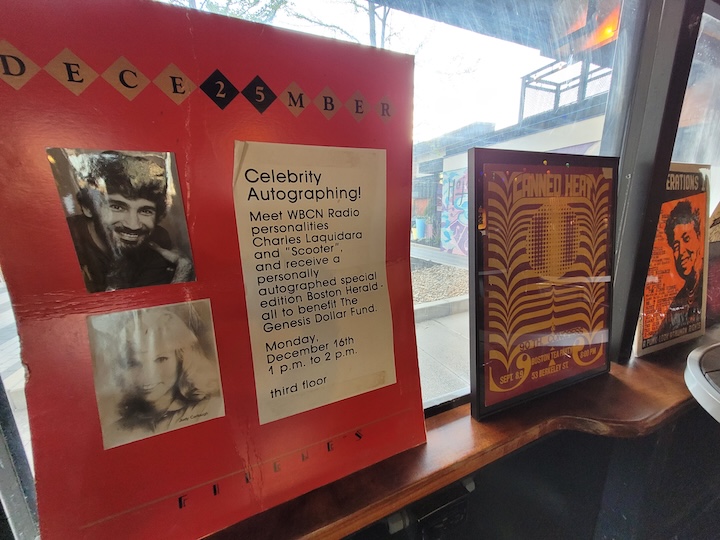
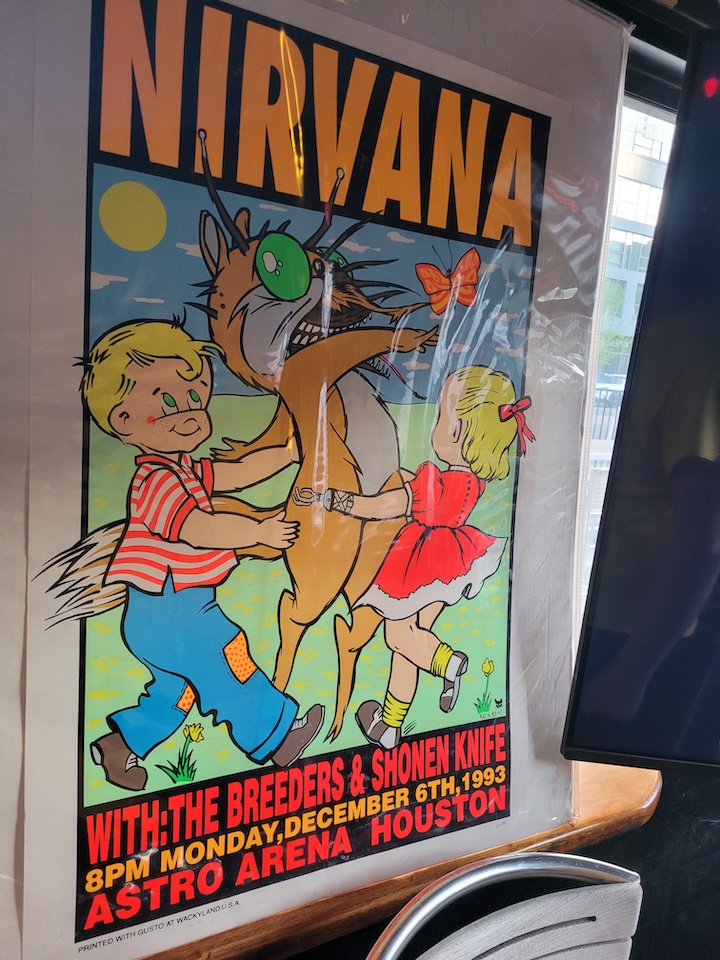
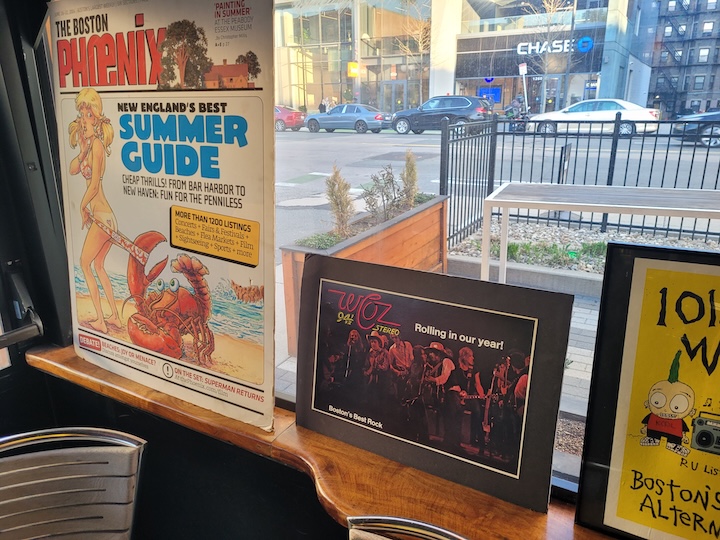
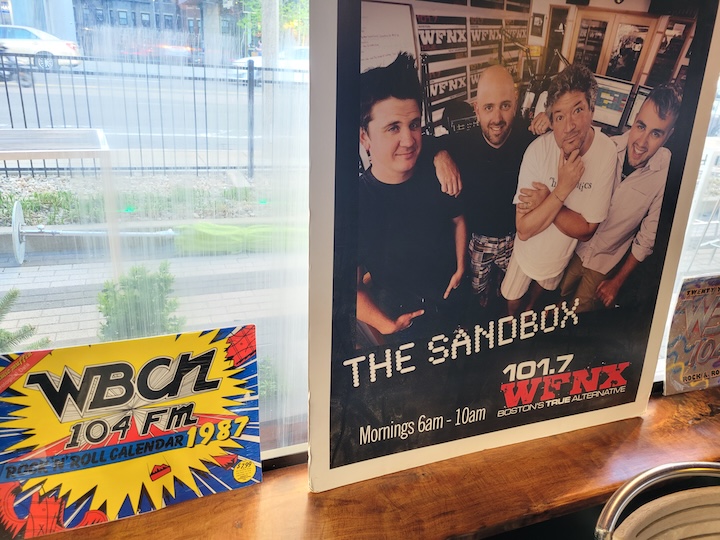
Oh, the places they’ve gone
In his opening remarks, Bieber reminisced about the many spots where friends partied and laughed. “They are gone,” he said, “but the connections are still there, and the people here are still in one way or another integrated in the media.”
For his part, Santoro has been the voice of GBH radio for the past decade. Laurie Gail, who spoke as the former station manager at WFNX, now works at the Boston music tech giant Sonos. Beloved WBCN DJ Cha-Chi Loprete still provides Beatlemaniacs with their fix via regular events, and Mary Menna graduated into upper management while staying close to her radio roots. Still in the business, she currently runs several stations in Boston and Philly, and is director of the Massachusetts Broadcasters Association.
In discussing the many directions they have broken off in, DJ Carter Alan sprinkled in some hard truths about why their mighty cadre splintered. The author of the lookback “Radio Free Boston: The Rise and Fall of WBCN,” he suggested that the freeform spirit to break boundaries and records never faded, at least among this cast of format loyalists, but in time, the people who made business decisions from on high got greedy, with stockholders cashing in and the talent assed out.
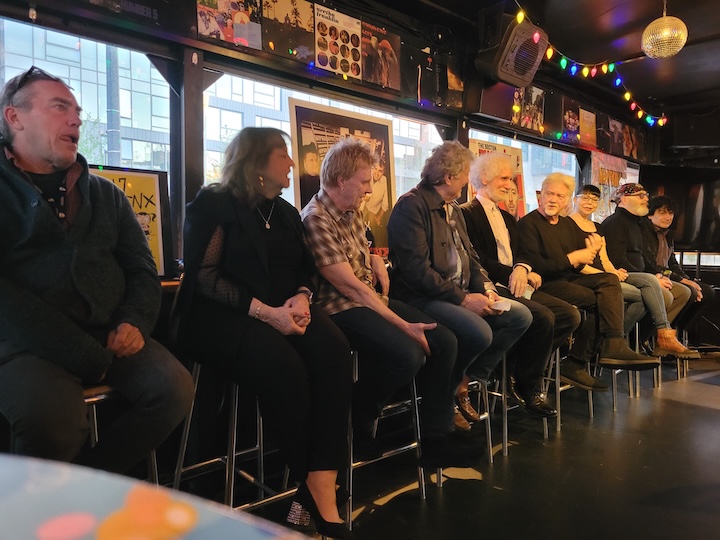
Preserving Boston history at the Verb and beyond
If I’m gushing, it’s because I know Bieber and his team personally, including Joe Packard and Chuck White who are deeply involved with curating the above and much more (read about a project they are doing with the Boston Institute for Nonprofit Journalism in Cambridge here). At a time when online articles and assets often vanish into the eternal depths of internet malfunction, the archive’s mission to parse and protect cultural moments is downright imperative.
It takes a certain caliber of savant biblio-and-vinylphile to help organize such an immense eclectic archive. Speaking on Monday, White, who is the VP and chief archivist at the David Bieber Archives, laid claim to the title of winningest WBCN call-in contestant. Given his experience and contributions to the trove that furnishes the Verb and other events and venues they curate, it’s no surprise that he’s the Larry Bird of golden era FM music trivia.
Since meeting Bieber, White said, he’s “spent the last 40 years moving all of David’s stuff around and making sense of it.” Then in a scene right out of “High Fidelity,” Packard, a musician, said that he came to fill his role in a similarly sideways fashion—White and Bieber kept using his moving services to haul their boxes, and before Packard knew it he was showing up there several times a week and working alongside them.
Surveying the carefully selected street papers and placards set up for the decennary salon, Verb Marketing Manager Joe Arbeely recognized the impact. Speaking to the local luminaries in the room, he said, “We watch people on the daily walk through these halls, and they have seen pieces of your own history thanks to David.”
“This place is a shrine to all the decades that we put into our careers,” Santoro added.
“Respecting the past,” however, is only half of the archive’s tagline. The other part is “embracing the future.” Bieber and his ragtag crew aren’t just archeologists, but rather they are still actively stashing away music merch and media plus other arcane gems, all while staying in tune with the current crop of personalities on college radio and the few other independent stations that remain.
“In this city, we are very fortunate to have that left-hand side of the dial,” Bieber beamed. Speaking broadly, he said, “You lose something along the way, but you gain something else.”

